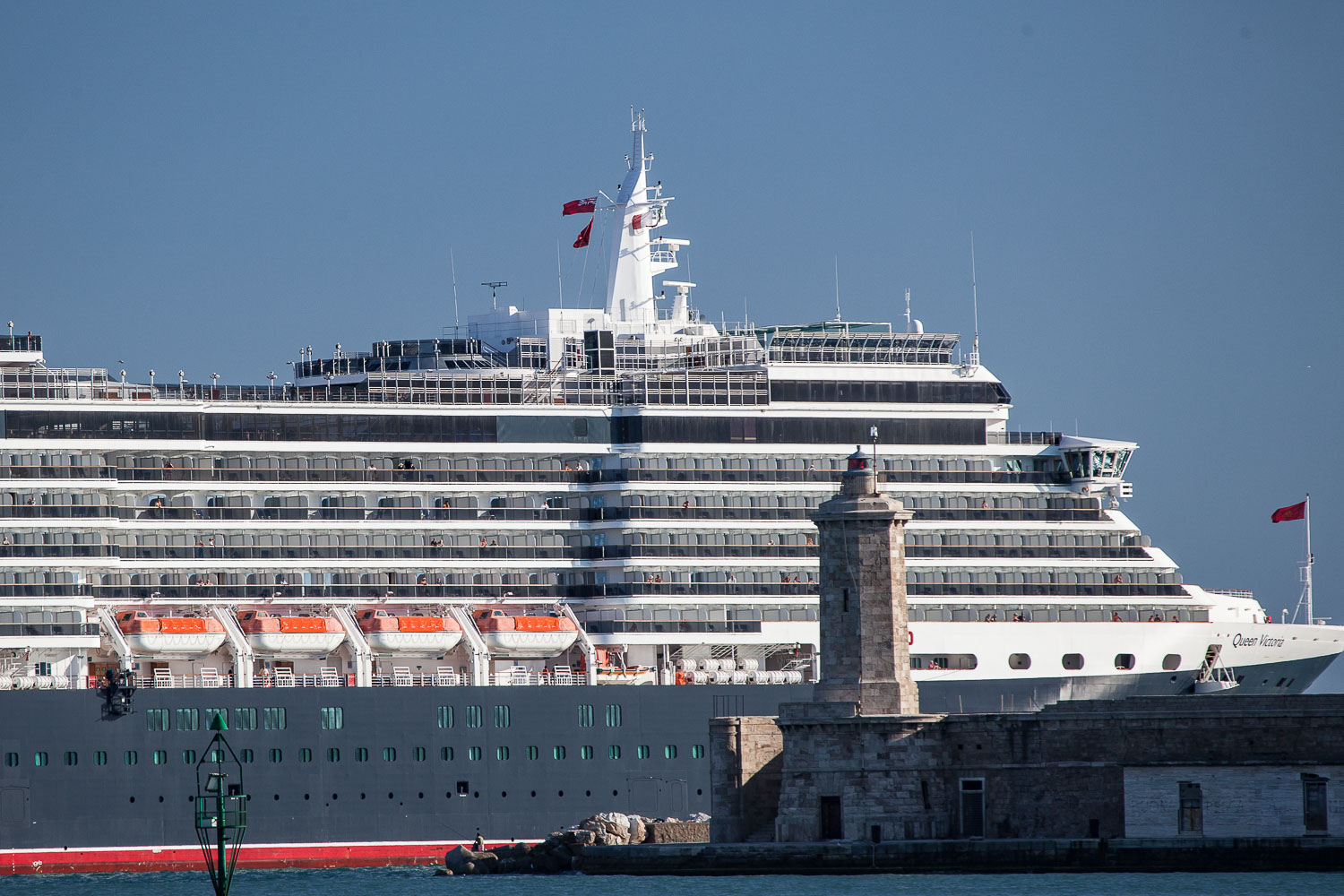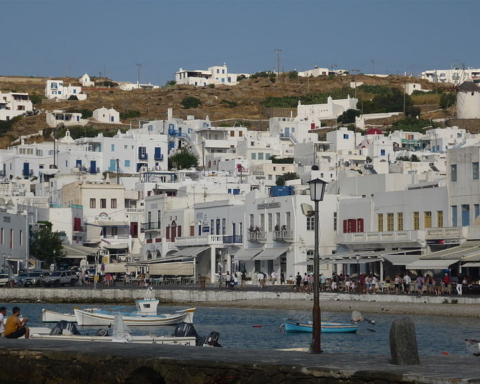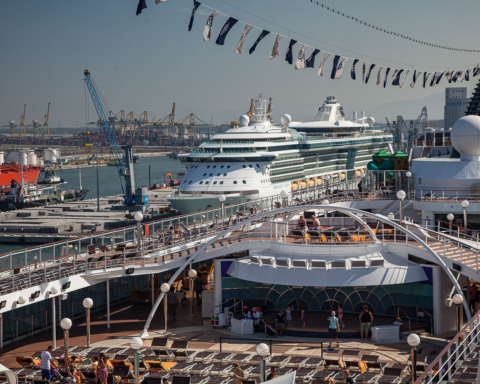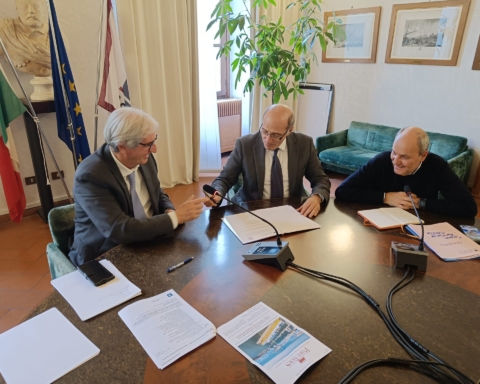“At a time of crisis like this, there is only one certainty: the total disregard for tourism, especially cruises and ferries. We would have expected and still expect more from the Government.”
Galliano Di Marco calls for oxygen in the same way as a doctor would do when faced with a patient at risk of asphyxiation and prescribes the most urgent treatment. The sick are obviously the Italian cruise terminals, which have lost 100% of their turnover in the Pandemic’s annus horribilis.
“In 2020 we practically came to a halt. Ferry and cruise terminals have stopped operating and those few that have continued, mostly in the Tyrrhenian area, have been handling cruise ships and ferries that are completely empty, or almost.”
The stalwart managing director of Venezia Terminal Passeggeri is broad shouldered. His many years of experience in the motorway and airport sector and his four years at the helm of the former Ravenna Port Authority have taught him not to take anything for granted.
“Sometimes, even doing one’s duty has a cost,” recalls Mr. Di Marco, referring to the legal case concerning the sludge from the Candiano dredging operation, which he was involved in and which resulted in his being fully acquitted on appeal after an initial conviction for environmental offences in relation to the construction of unregulated deposits (containment basins) of special non-hazardous waste.
“Those who are at the top of the government have to take responsibility. The same applies for Port Authority presidents. 2021 will not be the year of recovery. And without the necessary measures we risk not making it to the real recovery in 2022.
Mr. Di Marco points out that in 2020 the Venice terminal lost 100% of its traffic: “Despite this, we have not laid anyone off. On the contrary, we have supplemented our employees’ redundancy fund to bring it up to 80% of their salary.”
The Covid allowance is worth 1150 euros gross at most: “Too little for someone who earns up to 2000 euros a month in our sector. It’s not much more than 700 euros net: better than nothing, but you can’t expect people to live on it.”
“Our objective,” says Mr. Di Marco, “was, above all, to guarantee an adequate salary for families who were already going through a very difficult time due to the effects of the pandemic. Secondly, we wanted to prevent our human resources, which are the company’s most important capital and which we have spent many years qualifying, from going to other, less badly affected sectors.”
Italian cruise terminals have had to make enormous sacrifices and continue to bear the costs of managing and maintaining the areas under concession. Of course, “Art. 199 of the (Italian) Recovery Decree, extended to the cruise sector thanks to the mediation of Assiterminal (the Italian port terminal operators’ association – Translator’s note), has allowed us not to capitulate.”
However, the measure that gives Port Authorities the opportunity to reduce the amount of concession fees in favour of operators who have recorded a loss of over 20% of their total turnover has not been applied uniformly throughout the country: “Many Port Network Authority Presidents have been reluctant: instead of applying a rule of law, they have preferred to make assessments aimed at avoiding being held accountable by the Court of Auditors
What is even more serious, though, is the application of a 20% exemption from the fee, which is not well justified: “At the Coordination Conference, the Presidents agreed to apply a reduction in the State fee of up to 80% for companies that had presented a 100% reduction in turnover. Frankly, it doesn’t make any sense to me.”
In 2020, Venice Cruise Terminal forecasted revenues of €40 million. “It’s turnover was zero. I don’t understand why we still had to pay 20% of the concession fee. But what worries me most is what might happen this year: faced with revenues that are expected to be meagre or non-existent, we will not be entitled to any reduction in fees.”
Yes, because Art. 199 has not been re-proposed for 2021: “We will have to pay the full fee without even having the guarantee of a recovery in traffic”. Mr. Di Marco hopes that this is an oversight: “Community regulations foresee, in the case of unpredictable events, the possibility of reducing concession fees or extending leases for at least another five years can be envisaged as a compensatory measure in favour of terminal operators: we would like the Government to at least take into account the obligations of European Law.”
Mr. Di Marco’s requests are clear: “First of all: extend the applicability of Article 199 to 2021. Secondly: eliminate the detestable 20% exemption. Lastly, increase the 20 million euro fund for the sector set up in last year’s Budget. These are the proposals that we will make next week to the Ministry in charge. I am sure that we can count on Assoporti (the Italian port association- Translator’s note) as an interlocutor who is attentive to our needs: I have known Rodolfo Giampieri for a long time, he is a serious and reliable person”.
Mr. Di Marco’s stance is not only that of a man pounding his fist on the table but it also a heartfelt appeal to political decision-makers: “We feel we are being taken for a ride. In Italy, if we consider both direct and indirect employment, the cruise industry employs 119,000 people. We should deserve more consideration. If the pandemic crisis has hit the sector hard, the government’s inattention risks sinking it completely.”
In Venice alone there are almost 6000 workers in the sector. “Unfortunately, not all terminal operators have such broad shoulders as the one in Venice. There are workers who live on a 500-600 euros a month redundancy fund. It is not possible to go on like this. Many terminal operators risk closing down and taking their books to court. If we don’t act quickly, it will be too late.”
Translation by Giles Foster




